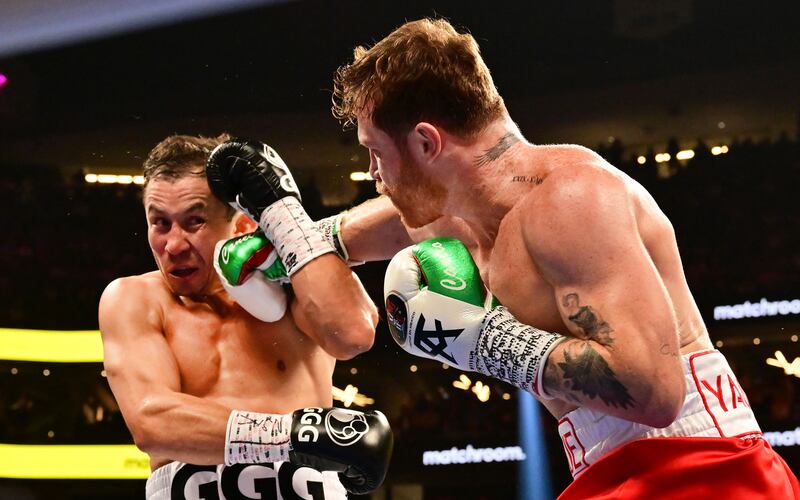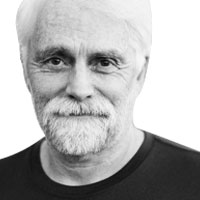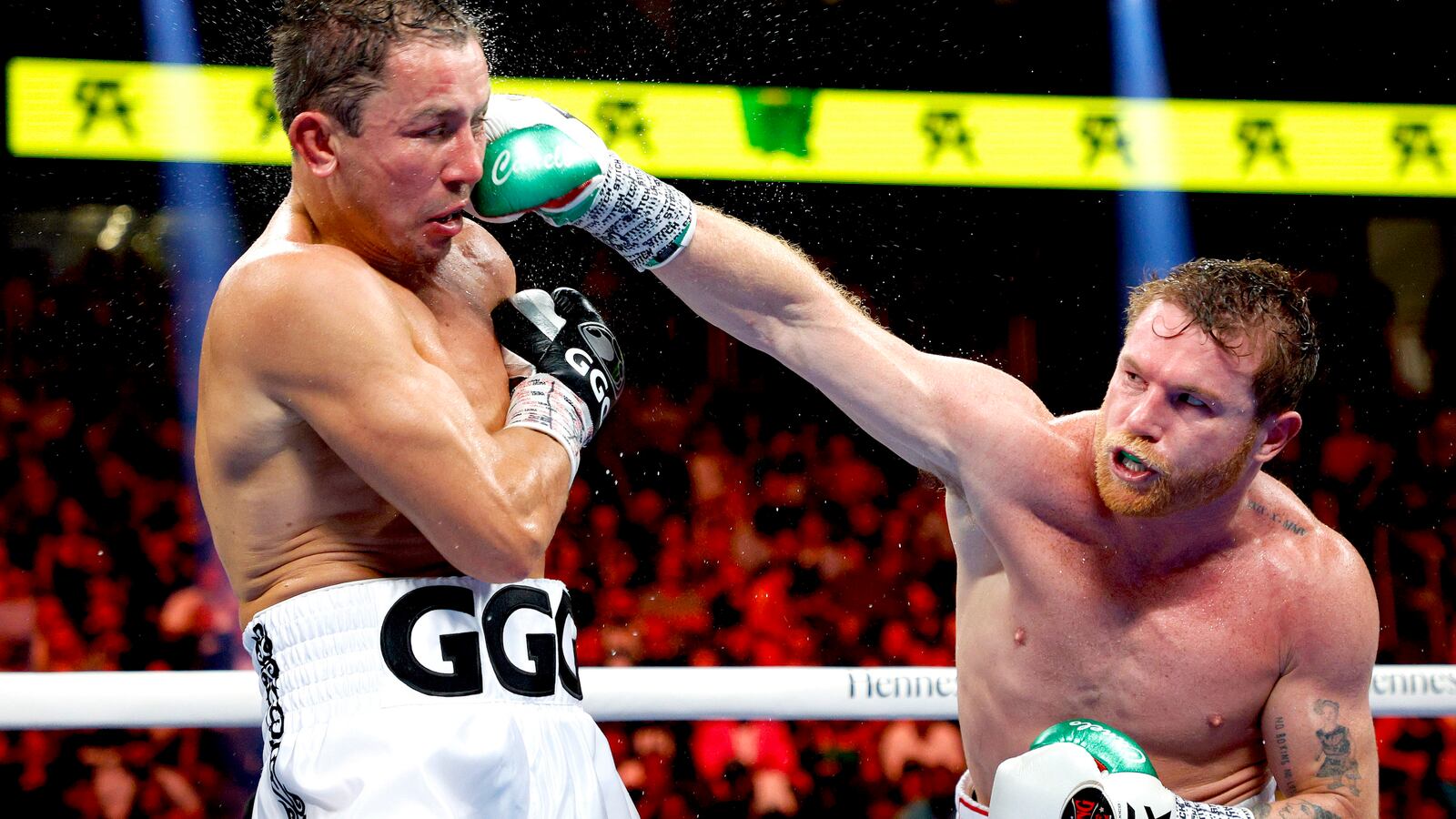As much as the boxers themselves, boxing trilogies have long helped frame the epochs of their sport. Rubber matches such as Ali vs. Frazier, Ali vs. Norton, Patterson vs. Johansson, Zale vs. Graziano, and other triptychs determined who was the better of two evenly matched masters of the noble art.
Last night at the T-Mobile Arena in Las Vegas, we witnessed a punctuating moment in pugilistic history, when Gennady “GGG” Golovkin (42-1-2, 37 knockouts) and Saul “Canelo” Alvarez (58-2-2, 39 knockouts) clashed for the third time, with Alvarez defending his undisputed super-middleweight title.
In September 2017, Alvarez eked out—or perhaps it would be more apt to say, “was gifted with”—a draw. A year later, Alvarez made adjustments and improved but only enough to come away with a hotly contested split decision victory.
Given the astronomical pay-per-view numbers and the high quality of the two fights, it would have been logical for promoters to arrange a third deciding contest immediately. Then again, logic and boxing have not always been good partners.
The boxing public has had to wait four years for these consummate artists of violence to reunite under the klieg lights. As it became evident this evening, the delay was more of a liver shot to the 40-year-old Golovkin than it was to the 32-year-old Alvarez.
A Kazakhstan native, Golovkin has arrived at an age when Father Time is as much a foe as his opponent in the ring. Boxing cognoscenti noted that GGG had lost a step and a millisecond of his mercurial reflexes.
After his 2018 victory, Alvarez mowed down a series of vaunted opponents, copping both the super-middleweight and light-heavyweight belts. Last year, Alvarez was honored by Ring Magazine as the best pound-for-pound boxer on the planet, an honor once bestowed on GGG. Then, however, in May 2022, Alvarez caught a case of hubris and challenged light heavyweight champ Dmitry Bivol. In a surprising upset, Alvarez was roundly beaten.
After the Bivol defeat, and having to constantly listen to the murmurs about questionable verdicts, the Mexican supernova came to Las Vegas with a burning need to reassert his supremacy in the ring against his arch-rival.
And he did just that last night. For the first eight stanzas, Golovkin did little more than paw with his jab. He was inactive and ineffective. Alvarez stalked the fighter who has always been the stalker, stayed in the pocket, and fired barrage after barrage of tight combinations. A matchless counterpuncher, Canelo tagged GGG with straight rights over GGG’s lefts. Uncharacteristically, Golovkin tried to go to the body, but Alvarez pasted him with hooks and uppercuts.
Golovkin does not fight well off of his back foot and Alvarez backed up his dangerous foe throughout the night. Always cultivating his cruel craft, Alvarez changed levels more than he has in the past, and perhaps as a result, Golovkin had a more difficult time delivering his vaunted jab, which he uses as both a cudgel and means of creating openings for his renowned power shots.
During the fifth act of the trilogy, Golovkin seemed to come alive. The fighter who used to be referred to as a “beast” showed some ferocity, moving forward, and scoring with respectable uppercuts and rights, but the dynamite just wasn’t there, even though he was attacking a tiring Alvarez.

Saul "Canelo" Alvarez and Gennady Golovkin exchange punches during their fight for the Super Middleweight Title at T-Mobile Arena in Las Vegas, Nevada, Sept. 17, 2022.
Frederic J. Brown/AFP/GettyTwo judges scored the bout 115-113; the third had it 116-112. Many members of the press did not give GGG a single round. I gave GGG the nod in three rounds.
After the final bell, the fighters seemed to have been washed clean of their animosity. Golovkin embraced Canelo, thanked him for the fight, and said there is no more feud. Also, GGG reminded everyone that he remains the unified middleweight champion and will continue to campaign.
Canelo further expressed gratitude and affection for his former foe. As for the future, he sorely wants a rematch with Bivol, which Canelo emphasizes, “He must and will win. For himself, his family, and Mexico.”
And who is going to doubt him after a masterful performance like tonight?






